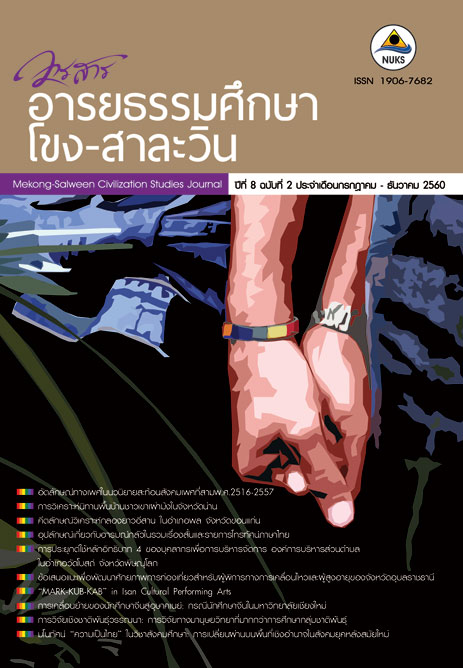มโนทัศน์ “ความเป็นไทย” ในวิชาสังคมศึกษา: การเปลี่ยนผ่านบนพื้นที่เชิงอำนาจในสังคมยุคหลังสมัยใหม่;The Concept of Thainess in Social Studies Subjects: Decentralization of Power in the Age of Postmodernity
Main Article Content
Abstract
บทความนี้มีจุดประสงค์เพื่อ 1) ทบทวนและวิพากษ์มโนทัศน์ความเป็นไทยที่อยู่ในกระบวนทัศน์ของพระราชบัญญัติการศึกษาแห่งชาติ พุทธศักราช 2542 แผนพัฒนาการศึกษาแห่งชาติ พุทธศักราช 2560 - 2574 และการจัดการศึกษาเพื่อพัฒนาพลเมืองผ่านหลักสูตรแกนกลางการศึกษาขั้นพื้นฐาน พุทธศักราช 2551 ในรายวิชาสังคมศึกษา 2) อภิปรายถึง “ความเป็นไทย” ในฐานะเครื่องมือทางการเมืองที่ส่งผลต่อการจัดการศึกษาเพื่อพัฒนาความเป็นพลเมืองในยุคหลังสมัยใหม่ และ 3) นำเสนอถึงแนวทางการจัดการเรียนการสอนสังคมศึกษาเพื่อเตรียมพลเมืองไทยในยุคหลังสมัยใหม่ ซึ่งข้อสรุปสำคัญในบทความนี้คือ “ความเป็นไทย” ตามแบบจารีตดั้งเดิมนั้นเป็นอุปสรรคหนึ่งในการจัดการศึกษาเพื่อพัฒนาความเป็นพลเมือง เนื่องจากกระบวนทัศน์หรือมโนทัศน์ “ความเป็นไทย” แบบจารีตนั้นถูกใช้เป็นเครื่องมือทางการเมืองในการหล่อหลอมกล่อมเกลาพลเมืองตามแบบจารีตที่สยบยอมกับค่านิยมจารีตดั้งเดิมของสังคมไทยซึ่งไม่สามารถตอบสนองต่อสังคมโลกที่เปลี่ยนแปลงอย่างรวดเร็วและซับซ้อนได้ ดังนั้นการสอนสังคมศึกษาในโลกยุคหลังสมัยใหม่ต้องเปิดพื้นที่เพื่อให้ผู้เรียนตระหนักรู้ในความเป็นมนุษย์ของตนเองและผู้อื่น สามารถนิยาม “ความเป็นไทย” ได้ด้วยตนเอง ตลอดจนแบ่งปันคุณค่า “ความเป็นไทย” ต่อผู้อื่นอย่างมีความหมายและส่งเสริมชุดคุณค่าสากลแห่งพลเมืองโลกในยุคหลังสมัยใหม่
This article aims to 1) review and critique the concept Thainess in Thailand’s BE 2542 National Education Act, the BE 2555 National Education Development Plan, and the provision of education for civil development in the BE 2551 Basic Education Curriculum, especially as related to the subjects of social studies, 2) discuss the political discourse regarding to Thainess which affects the education for civil development in Thailand, and 3) suggest a good teaching method for teaching social studies subjects to inculcate citizens for the age of postmodernity. The article concludes that the traditional Thainess is an obstacle to civil development in the age of postmodernity because it is used as a tool of conservative politics. In addition, it does not open an area for people to define their own Thainess. As a result, the teaching of social studies subjects should open up students’ awareness of who they are and what capacity they have so that they can share the meaning of Thainess appropriate for the age of postmodernity.


